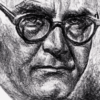Category: Evangelical Calvinist
Writings from the blog: Athanasian Reformed (aka The Evangelical Calvinist). Senior Reformed scholars present a coherent and impassioned articulation of Calvinism for today’s world.
The Father’s Loving Discipline
4 You have not yet resisted to the point of shedding blood in your striving against sin; 5 and you have forgotten the exhortation which is addressed to you as sons, “My son, do not regard lightly the discipline of the Lord, Nor faint when you are reproved by Him; 6 For those whom the Lord loves He disciplines, And He scourges every son whom He receives.” 7 It is for discipline that you endure; God deals with you as with sons; for what son is there whom his father does not discipline? 8 But if you are without discipline, of which all have become partakers, then you are illegitimate children and not sons. 9 Furthermore,…
Valley of the Shadow of Death: Please Keep Me in Prayer
I have really been going through it. I won’t disclose exactly the source of it all (not sinful or anything), but I have a load of anxiety pulsating through my body even as I type this. The Lord is working, and things are getting better; but I would desperately ask that you hold me up in prayer as you remember me. I literally felt as if I was walking through the valley of the shadow of death, as near as last night. I’m still in that valley, but hopefully mostly through it, and on the upward bound. Stress and anxiety…
Reflecting on Advanced Theology Degrees and a Theology of Glory
I know some tire of me opining on what has been called a ‘theology of glory’ (which is a negative thing), but for me it is seemingly something the Lord always has convicted me on ever since I started radically walking with him. This was of course a theme for Martin Luther who is known for his theology of the cross versus what he identifies as a theology of glory (that of the schoolmen). I believe, ultimately, the Apostle Paul is really the greatest advocate for living a life in the theology of the cross (which of course includes resurrection and ascension). In light…
The Monad’s Banqueting Table: On Classical Theism’s Affectionless God
Classical theism is once again a hot-topic. If you scroll through theo-Twitter you will find an in-house debate on the entailments of a classical theism. But this isn’t just reducible to the debate between the Reformed Baptists, and the impact that Thomas Aquinas has had upon the development of their respective types of Reformed and/or Calvinist theology. This debate is ongoing amongst philosophical theologians like Ryan Mullins, Steven Nemes et al., and whatever their alternative offering might be—whether that be an ‘open theistic’ understanding, or something more phenomenal. And then of course we have the charge against folks like Barth,…
What is History According to Barth’s Theology?: On the Covenant of Grace
Theology ultimately should be a very concrete thing, at least for the Protestant Christian. We are people of the Word of God; we are people who have been radically brought into the life of God by a deep sense of the theology of God’s Word as that has confronted us in the face of a man from Nazareth. It is this Word-grounded reality upon which we, then, as Christians think a God-world / world-God relation; that is, through the analogy of the hypostatic union, of the Theanthropos Godman, Jesus Christ. And it is as we have come to know this…
Logos asarkos, Word without Flesh
Barth’s theology is often tagged as postmetaphysical in line with something like Kant’s, and more to the point, post-Kantian mediating theologians like Albrecht Ritschl, Wilhelm Hermann et al. But this is overwrought in the sense that Barth might be a trained modern theologian, nevertheless he is conditioned more by his reliance on the antique tradition found in the patristic past, and into the modern post reformed orthodox development of Protestant theology in Western Europe. Because of his influences we get a smattering, as Bruce McCormack might say, of a Barth who is both Orthodox and Modern. In this post we…
On the Eschatological Nature of the Theological Task
For Barth dogmatic theology is eschatological, dynamic, personal, and scandalously particular to the person and work of God in Jesus Christ. That is why the work of dogmatics is semper reformanda per the ground and grammar of God’s triune life in Jesus Christ. The work of dogmatic theology is a Petrine ‘growing in the grace and knowledge of Jesus Christ’ in ‘whom are hidden all the treasures of wisdom and knowledge.’ This implies that dogmatic theology should never be stifled by static reception or repristination. As Christians, theologians, we aren’t engaged in an impersonal arid work of dialectical analysis, per…
John Calvin’s Theology of the Cross as Theological Theology
Staying on theme from the previous post, let’s continue to focus on the theologia crucis; except this time it won’t be Luther’s, but John Calvin’s. Karl Barth in his Church Dogmatics III/1 refers us to the foreword Calvin wrote for his Commentary on the Book of Genesis (1554). Herein Calvin offers something that sounds intimately close to Luther’s thinking on a theology of the cross. So Calvin: indeed it is vain for any to philosophize in the manner of the world, unless they have first been humbled by the preaching of the gospel, and have instructed the whole compass of…
A Chapter for an Eclipsed PhD Dissertation: On Reformed Identity, Historical Method, and an Evangelical Calvinism as Alternative
Since this “dissertation” and PhD by Publication isn’t going to see the light of day now, I thought I would share the introduction chapter that I presented for said dissertation. Part of it includes my contribution to the introduction to our second volume Evangelical Calvinism book that I co-wrote with Myk Habets. The part I appropriate for that, in this current iteration (as introduction to my “dissertation”), is, of course, the part I wrote. And then, much of that has been augmented by further writing, as you will see. But I think it underscores some needed orientation, particularly as “Reformed…
What Great Tradition?
In theological circles these days there is a push to recover the so-called Great Tradition, of the type of thinking, in regard to the Trad, or also, the so-called Consensus Patrum, that we get in Vincent of Lérins. That is, a type of generalization a flattening out of a perceived consensus of the faithful that has some type of agreed upon core of the core of orthodoxy that ostensibly the majority of Christian theologians, “orthodox” ones, have affirmed and submitted to as regulative for their own respective theological offerings. Contemporaneously, we have movements by Reformed theologians, particularly Baptist ones currently,…





